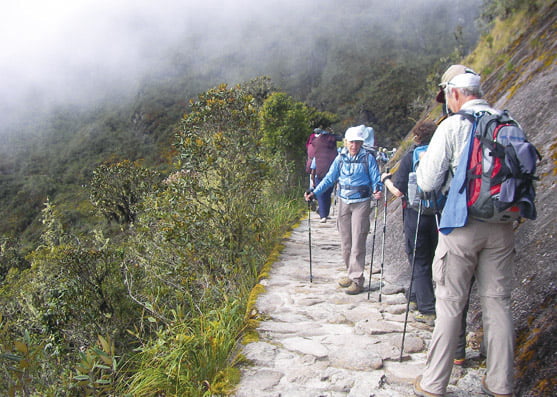The exhausting trek that thousands of tourists make to arrive at the fortress of Machu Picchu is gratifying. Following in the footsteps of the Incas, who, with strength and organization achieved the construction of such a marvelous sight, is something not every visitor desires or is able to do.
This activity, known to the world as the “Inca Trail,” is regulated by Peruvian state-run entities. Only agencies which meet certain requirements can offer treks on the Inca Trail. One of the most important aspects is the maintainance and protection not only of the environment but also of the cultural heritage of the Inca Trail and its surroundings. To this end, we avoid using bottles and cans along the way. We use biodegradable plastic bags and soap and train trekkers where and how to dispose of organic and inorganic waste.
Our contribution toward caring for the environment through the use of biodegradable bags is important, since normal plastic bags take 300 years to decompose, while biodegradable plastic bags take only 2 years. This quick decomposition is due to the presence of an oxo-biodegradable compound, which, upon being exposed to oxygen, light, humidity, and friction, begins the process of oxidation, which breaks the plastic down as it loses molecular weight. Then, microorganisms are able to transform the plastic into biomass. Moreover, it is important to mention that both the trekkers who travel with us and the field staff and guides use biodegradable soaps, which are cleaning agents that break down quickly and naturally and, in this way, help to reduce the environmental impact on the area.
This trek will not only transport you to a world full of mystical and astonishing landscapes that cannot be seen in any other part of the world—it will also, at the same time, teach you where we are and how we can help contribute to the preservation of cultural heritage through maintaining and protecting the environment, so that future generations can continue to enjoy the wonders of our world.


